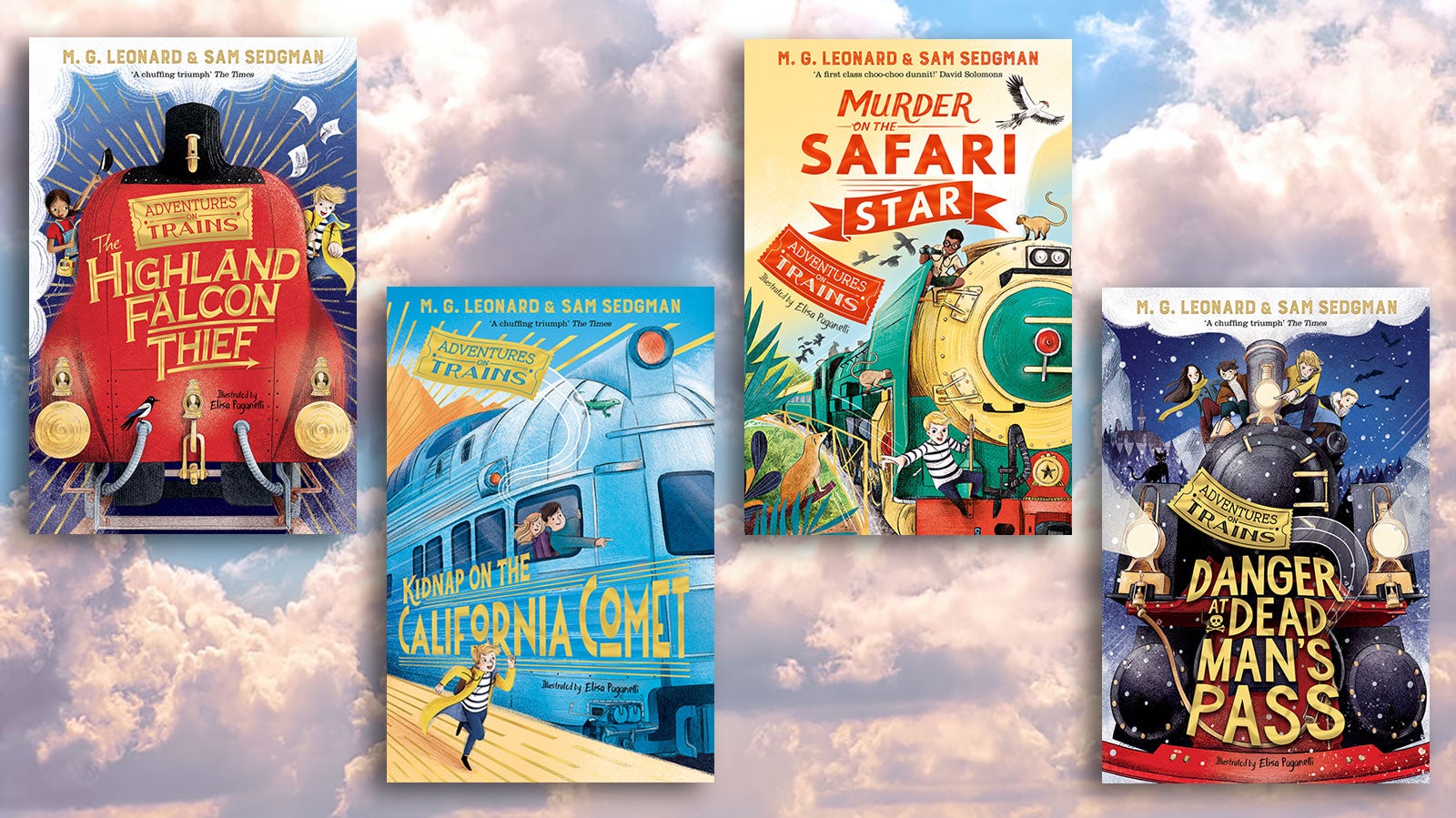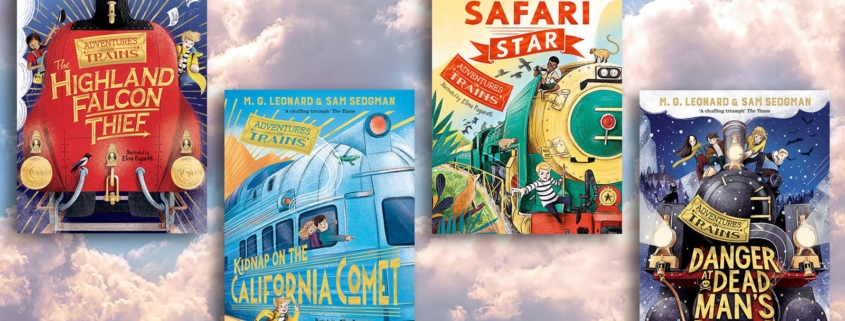The Joy of Travelling by Book by Sam Sedgman

Books are a brilliant way to travel. From our cosiest chair on a wet afternoon we can be transported to the polar ice caps, the Brazilian jungle, downtown Chicago or a Moroccan souk. This is particularly useful for children, who don’t have the same power to travel as a grown-up does. I can hop on a plane whenever I like, but if my nephew wants to visit Peru to see where Paddington Bear comes from, there’s not a lot he can do about it. Books, for young readers, are an essential tool for exploring the world.
Me and my co-writer M. G. Leonard often think of our Adventures on Trains series as travel writing for children. Our young protagonist, Harrison Beck, travels on some of the world’s greatest railway journeys with his uncle, a travel journalist. Although the crime Harrison discovers and the train he rides on are crucial ingredients to the story, everything is framed by the country he’s exploring as he travels. Our most recent book, Danger at Dead Man’s Pass, features a trans-European railway journey to the Harz Mountains in Germany. Foreign languages, Faust, Parisian stations, the legacy of the Cold War, and a festival of witchcraft are all crucial ingredients to our tale, and we take great joy in using our adventure as a way to help readers explore Germany, sharing the excitement of travel that Harrison feels while he is busy investigating a mysterious death.
I’ve always felt that detective stories and spy novels work particularly well in unfamiliar settings – most likely because they have investigation at their heart. Learning the secrets to a mystery dovetails nicely with learning about a new place. From Lauren St John’s Laura Marlin mysteries and Katherine Woodfine’s Taylor & Rose adventures, there are plenty of modern examples to choose from. Writing foreign settings suits children’s fiction particularly well because children have a natural curiosity about the world that us jaded adults have often lost. When we take our young protagonist Hal into a new setting, I find the first thing out of his mouth is usually a question about the world around him. Being a good tourist is a lot like being a good detective: be curious; be observant; explore.
Travel also encourages us to reflect on our own way of living. On seeing a foreign custom, a young character’s first question might be “why do they do things like that here?” but their second may well be the opposite: “why do we do things differently at home?” Travel lets us see the world in a new light – which is why stories about families travelling together also seem to make a particularly rich seam for storytelling. A family trip is the perfect catalyst for shaking up established dynamics. Whether it’s the perfectly ordinary-seeming family visit to Karachi in Saadiya Faruqi’s A Thousand Questions, or the catastrophic plane crash in Katherine Rundell’s The Explorer, stripping away the familiar comforts and routines of home is an excellent source of drama, and a great starting point for characters to learn more about the world, and themselves.
Writing an international adventure series during a year of lockdowns was particularly tough, but I hope Adventures on Trains was able to give readers some comfort and escape during a difficult time. As the world opens up again, I hope we are all able to rediscover the joys of travelling the world – even if we do it from our comfiest chair, without leaving the house.
The Adventures on Trains series has 4 books currently published by Macmillan and are available from book retailers!





Leave a Reply
Want to join the discussion?Feel free to contribute!